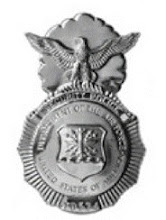
The next conservative, or libertarian that I will feature is Thomas Jefferson. Unlike the present day Democrats, I get that Thomas Jefferson is a libertarian. He's not a Democrat, read these quotes. They tell you how he thought. I'm sorry to burst the Dem bubble. So the Jefferson/Jackson Day Dinner is bogus.
I'll take on Jackson later. But as for Jefferson, he was closer to being a neo-Conservative than he was a modern day Dem. Really? The Louisiana Purchase, 1803 was a tormenting experience for Jefferson. He felt in his heart, that the constitution had to be amended to make the purchase constitutional. Nowhere in the constitution did it give the executive branch the power to add territory to the country, consisting of a very diverse population and in the bargain pay nearly $15 million for the addition.
He worried that Napoleon was so unstable and mercurial that he needed to let James Monroe and Robert Livingston who he sent, make the surprising deal that Napoleon offered them immediately for fear of him retracting it. Lucky for us, right?
Jefferson was a complex guy and I think it would be foolish for a lower intelligence guy like me to try to explain him. I would like to recommend a couple of books about Jefferson to you. Both are by Joe Ellis, the first is "American Sphinx" the second, is "Founding Brothers." As the quote goes in the movie "I am not worthy."
The best argument for my premise is to let Jefferson speak for himself. He far surpasses anything I could say. He makes his case as a libertarian quite nicely, thank you.
"I consider the foundation of the [Federal] Constitution as laid on this ground: That "all powers not delegated to the United States, by the Constitution, nor prohibited by it to the States, are reserved to the States or to the people." [10th Amendment] To take a single step beyond the boundaries thus specifically drawn around the powers of Congress is to take possession of a boundless field of power, no longer susceptible of any definition." --Thomas Jefferson: Opinion on National Bank, 1791. ME 3:146
"I was in Europe when the Constitution was planned, and never saw it till after it was established. On receiving it, I wrote strongly to Mr. Madison, urging the want of provision for... an express reservation to the States of all rights not specifically granted to the Union." --Thomas Jefferson to Joseph Priestley, 1802. ME 10:325
"Whensoever the General Government assumes undelegated powers, its acts are unauthoritative, void, and of no force." --Thomas Jefferson: Draft Kentucky Resolutions, 1798. ME 17:380
"[An] act of the Congress of the United States... which assumes powers... not delegated by the Constitution, is not law, but is altogether void and of no force." --Thomas Jefferson: Draft Kentucky Resolutions, 1798. ME 17:383
"To keep in all things within the pale of our constitutional powers... [is one of] the landmarks by which we are to guide ourselves in all our proceedings." --Thomas Jefferson: 2nd Annual Message, 1802. ME 3:348
"[We considered the Alien and Sedition] acts as so palpably against the Constitution as to amount to an undisguised declaration that that compact is not meant to be the measure of the powers of the General Government, but that it will proceed in the exercise over these States of all powers whatsoever... [We] view this as seizing the rights of the States and consolidating them in the hands of the General Government, with a power assumed to bind the States, not merely as [to] cases made federal (casus foederis), but in all cases whatsoever, by laws made, not with their consent, but by others against their consent... This would be to surrender the form of government we have chosen and live under one deriving its powers from its own will and not from our authority." --Thomas Jefferson, Draft Kentucky Resolutions, 1798. ME 17:390
"It would be a dangerous delusion were a confidence in the men of our choice to silence our fears for the safety of our rights... Confidence is everywhere the parent of despotism. Free government is founded in jealousy, and not in confidence. It is jealousy and not confidence which prescribes limited constitutions, to bind down those whom we are obliged to trust with power... Our Constitution has accordingly fixed the limits to which, and no further, our confidence may go... In questions of power, then, let no more be heard of confidence in man, but bind him down from mischief by the chains of the Constitution." --Thomas Jefferson: Draft Kentucky Resolutions, 1798. ME 17:388
"Unless the mass retains sufficient control over those entrusted with the powers of their government, these will be perverted to their own oppression, and to the perpetuation of wealth and power in the individuals and their families selected for the trust. Whether our Constitution has hit on the exact degree of control necessary, is yet under experiment." --Thomas Jefferson to M. van der Kemp, 1812. ME 13:136
"I sincerely wish... we could see our government so secured as to depend less on the character of the person in whose hands it is trusted. Bad men will sometimes get in and with such an immense patronage may make great progress in corrupting the public mind and principles. This is a subject with which wisdom and patriotism should be occupied." --Thomas Jefferson to Moses Robinson, 1801. ME 10:237










5 comments:
Law and Order,
I've needed to read the quotes several times, line by line until the thought coalesces and the wisdom shines through.
I'll need to go over this several times.
But you sell yourself short, my friend. You are very worthy.
Oso,
I tell my students that 18th century language is hard to grasp. But Jefferson is a wisdom unto himself. I would like to think that I am on par with him, but alas that isn't true.
John Adams calls next. I'll give you preview my friend, because you are an intellectual knowledge seeker. Thanks for stopping by.
I'd watched a program on the Civil War several years ago.There was a segment showing examples of the letters written by soldiers to their wives and sweethearts.
Beautifully written prose. Descriptive, flowing and heartfelt sentiment.
When you contrast that with the way people write in modern times-I'm not exempting myself or our generation-it might be a symptom of the general dumbing down of the populace.
This in reference to your student's difficulty with 18th century language.
I've portrayed Thomas Jefferson professionally for almost 20 years, to convention audiences from Maine to Hawaii. I've read a great deal about Mr. Jefferson and have made myself an authority on the man.
You recommended two books by Joe Ellis. I refuse to read anything that man has written! Why? Look for articles about Ellis in the June 18 and July 2, 2001 editions of the "Boston Globe."
Be careful whom you look to as an authority. Sounding credible doesn't make one so.
Patrick Lee
www.PatrickLee.com
A man who thought that a human being could own another human being was a libertarian???
Post a Comment